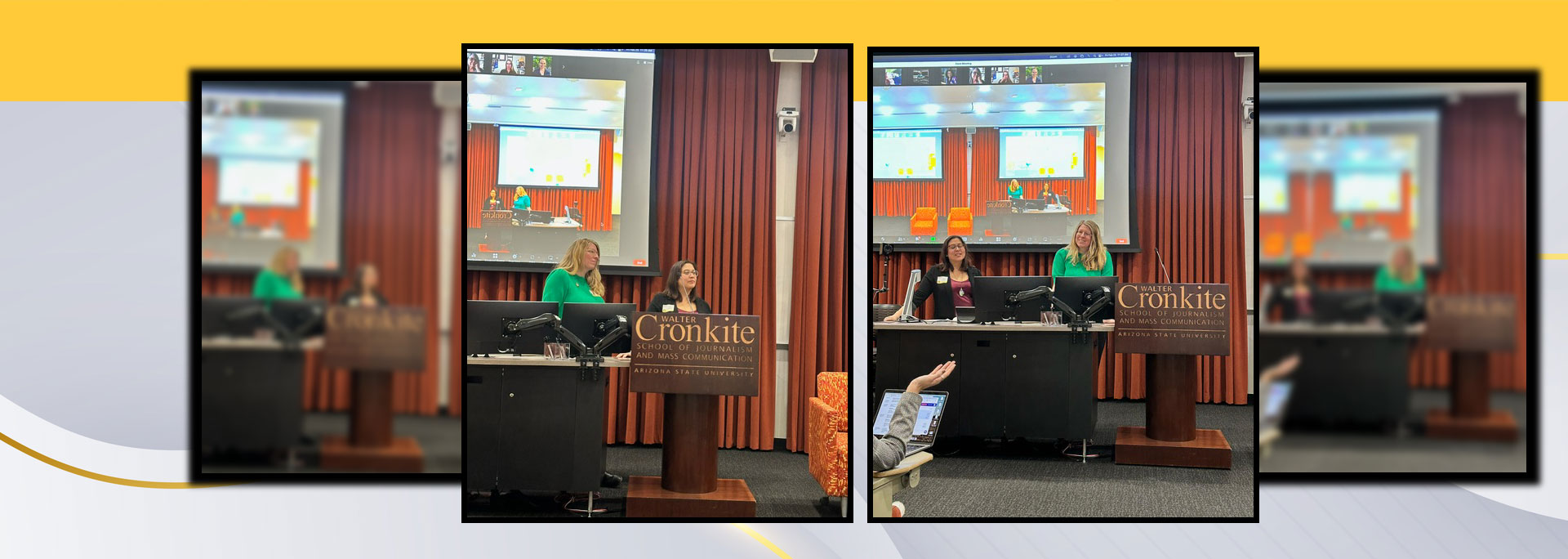Students at Arizona State University’s Walter Cronkite School of Journalism and Mass Communication showcased their research on artificial intelligence, cancel culture and other media-related topics during the 2024 Cronkite Research Symposium.
The symposium provided an opportunity for Cronkite students to present their research papers and abstracts, and receive feedback from faculty and peers before submitting their materials to conferences and academic journals. It was also a chance for the school’s research community to celebrate their work in a field where they sometimes feel isolated.
“It can often be really solitary, sometimes lonely work, and this is an opportunity for us to get together and remind ourselves that we are part of a community,” said Cronkite School Assistant Dean and Associate Professor Dawn Gilpin.
Doctoral students are the most common participants, but the symposium is also open to students seeking their bachelor’s and master’s degrees. The symposium also illustrates the opportunities available to prospective students who may want to attend Cronkite.
“We want to let students know that if they come to Cronkite, they will have opportunities to obviously work alongside and learn from people who do this research and bring that into the classroom,” Gilpin said. “They can get exposed to cutting edge research across the board but also — if they’re interested — they will have opportunities to learn how to do some of that themselves.”
This was the fourth year that the Cronkite School hosted the symposium. Cronkite Professor
Joseph Russomanno, who’s retiring at the end of this semester, served as the keynote speaker, while two Ph.D students were named co-winners for the top research papers.
Doctoral student Amanda Kehrberg was recognized for her paper, “Thinker, Listener, Speaker, AI: Three Perspectives on the Algorithmic Marketplace of Ideas,” which examines how algorithms and artificial intelligence influence daily decision-making within institutions and throughout society.
Fellow Ph.D student Kimberly Holst shared the top prize for her paper, “Cancel Culture: Differentiating a Marketplace of Ideas from a Warehouse of Ideas,” showing how so-called “cancel culture” can regulate unacceptable discourse. Holst was also the top paper award winner last year.
The students split a $500 prize.
Kehrberg is a second-year Ph.D student who is studying various aspects of strategic communication including public relations, marketing and advertising. She is also interested in technology, misinformation and parasocial relationships with media influencers.
She values the feedback and collaboration among the professors and other students who participate in the symposium, she said.
“The fact that we have this yearly and the community of academics here show up, wants to be here, wants to see everyone’s research and get the chance to talk about research is so important,” she said. “Not just to train us as future scholars and future teachers, but future human beings, future people who are going to be part of a scholarly community.”
